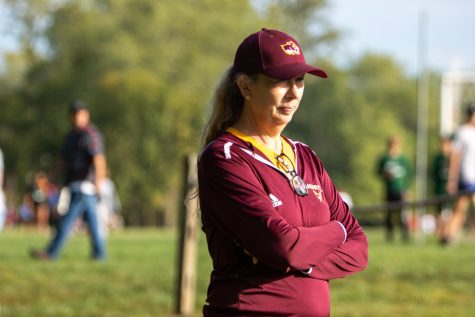The KonMari Method: Real or Scam?
To hook in their viewers planning on cleaning up their belongings as a New Year’s resolution, Netflix released the binge-worthy show “Tidying Up With Marie Kondo” on January 1st. The show is a spin off of Marie Kondo, a celebrity Japanese “tidyer” who authored the book “The Life-Changing Magic of Tidying Up: The Japanese Art of Decluttering and Organizing”. The book sold over 2 million copies worldwide, in which readers became drawn into the KonMari method to clean up their belongings, and as a result, their life.

The KonMari method emphasizes that a cleaner living space is a result of an attitude and method that brings about a healthier, more appreciative lifestyle. This is done by finding what “sparks joy” and thanking the objects that have impacted the reader’s life.
Readers and watchers of Marie Kondo seem to be attracted to the control that the KonMari method offers. An anonymous student from North remarks that Marie Kondo’s method of organizing was useful.
“I immediately cleaned out my closet after watching 10 minutes of the first episode. At first I thought the whole thing was a scam, but I found myself applying a lot of the KonMari method to my real life. It’s refreshing knowing I have a little more control of the space for my belongings.” she said.
But it seems other students at North, like senior Dillon Dayhoff, have their own methods to organizing their belongings.
“I like to organize my belongings chronologically, Dayhoff said. “My clothes pile up by when I wear them, and notes and schoolwork get piled up by when I last used them. It’s definitely a system individual to me.”
Senior Jeremy Kirk is just plain skeptical of the KonMari method.
“I’m not totally buying into the whole “spark joy” stuff, but I think it’s good to clean and consider what your belongings mean to you,” Kirk said.
Kirk also notes that he seems pretty happy with how he organizes his own life, from schoolwork to computer passwords.
“I’m disorganized personally, I just kind of do things on the fly,” Kirk said. “It’s nice to me, and it’s kinda my thing to reject rigidity like the KonMari method. Taking somebody’s advice on how to gain control is by definition giving it (control) up, and discipline is best coming from an internal realization that what you’re doing isn’t working for you.”
The KonMari method has clearly influenced many to declutter their belongings and lifestyles, including students from North. However, North students speak larger to their own personal methods of organizing their lives and belongings in a way they understand best for themselves.





